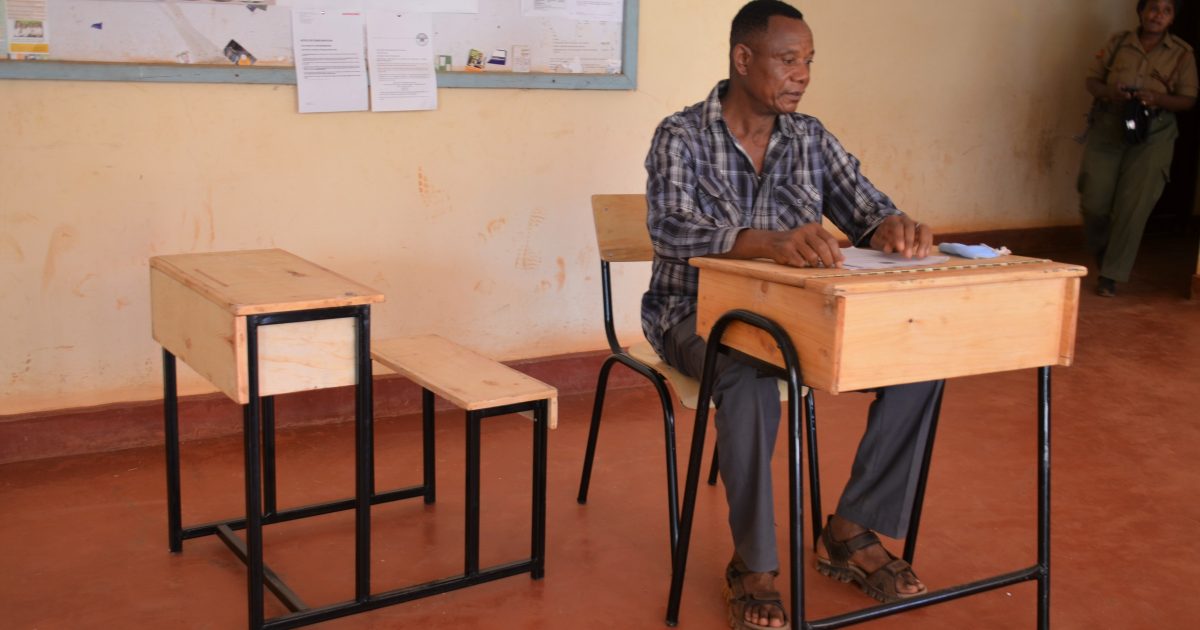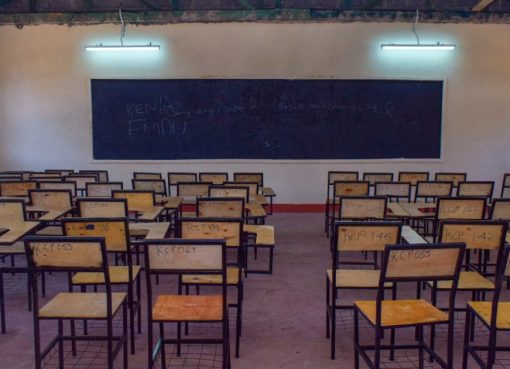Taita-Taveta County Jua kali sector is set to earn over Sh. 23 million after the government started the process of recruiting local artisans to supply 7,500 locally assembled desks and lockers for primary and secondary schools in the region.
County Director of Education (CDE) Mr. Samson Wanjohi said Juakali artisans in all the four sub-counties would fabricate the desks for use in schools. He added that the works would involve making single-seater desks for primary schools and a locker plus a chair for secondary schools.
In total, a hundred and sixteen schools are poised to benefit from the project in the county. They include sixty primary schools and fifty-six secondary schools.
“The artisans are supposed to see the proto-type desk, locker and chair they are supposed to make so as to conform with the specified designs to ensure high standards,” he explained.
This initiative falls under the education pillar whereby in May’s President Uhuru Kenyatta’s launched Eight-Point Stimulus Program that outlined the government’s plans to mitigate against the adverse effects of Covid-19.
As a result, the project will see hundreds of small-scale Jua kali players’ benefit. The initiative is also intended to bolster the production capabilities of the local manufacturing sector.
Nationally, money allocated for making desks for schools is Sh 1.9 billion.
Preliminary data indicate the distribution pattern is largely based on the number of schools per sub-county. The four sub-counties of Mwatate, Wundanyi, Voi and Taveta will each get 1,050 desks to be distributed amongst 15 primary schools.
“Each of the 15 primary schools in every sub-county will get a total of 70 desks,” explained the CDE.
For secondary schools, Voi sub-county will receive 850 lockers and chairs with each of the seventeen schools poised to get fifty pieces. Fourteen schools in Taveta sub-county will get a total of 700 lockers.
In Wundanyi, eighteen schools will benefit with a total of 850 while Mwatate will get 900 lockers with each of the 18 schools getting fifty lockers and chairs.
The cost of making one desk is pegged at Sh. 2,500 while that of a locker and a chair is at Sh 3,800.
Mr. Wanjohi said the project was open for all Juakali artisans who would be tasked to replicate the designs of the prototype and brand them with the names of the institutions.
“For standardization, the artisans will follow the designs as prescribed to ensure we have quality products,” he explained.
To further accommodate the artisans, the program has a provision for individual, company or groups applicants to ensure that all categories are catered for.
Juakali artisans expressed optimism that the process would consider the small-scale startups and upcoming workshops with little capital.
Silas Ndau, a metal fabricator, in Taveta town, said the desks’ project had the potential to trigger rapid growth in the Juakali sector that had been slowed down by lack of work, following the coronavirus outbreak. He noted that the sector has employed thousands of youth in the region who could not be absorbed in the formal sector.
He appealed to the government to further boost the sector by adopting a policy where furniture for offices for both national and county governments are assembled by local Juakali artisans.
“The desk project is a very promising start. We are asking the government to consider allowing furniture for government offices in the counties to be made in our workshops,” he said.
However, other artisans complained that the deadline for the application to get the tender for the works was too tight explaining why some artisans failed to apply.
By Wagema Mwangi





